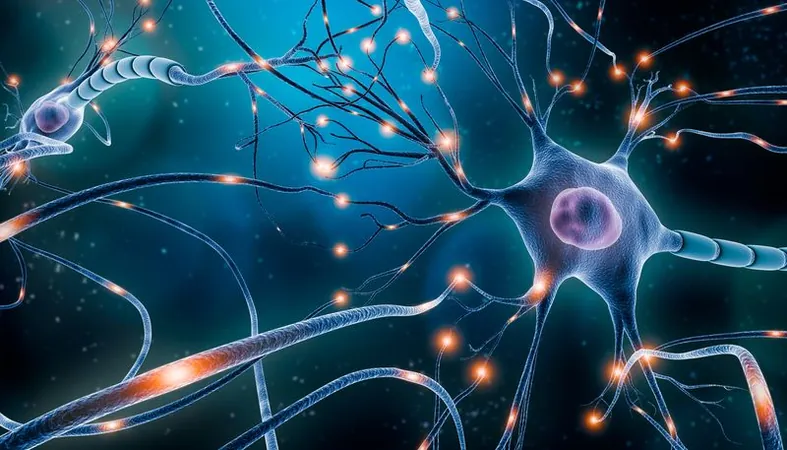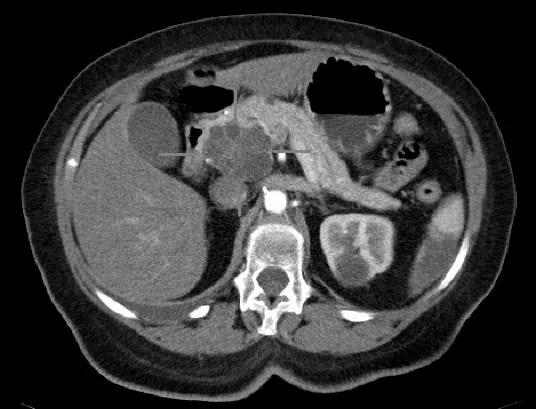
Exciting Discovery: Human Brain Forms New Neurons Well Into Adulthood!
2025-07-04
Author: Yu
Groundbreaking Findings on Adult Neurogenesis
In an astonishing revelation, researchers from the Karolinska Institutet in Sweden have discovered that the human brain continues to create new neurons, or nerve cells, well into late adulthood, specifically within the hippocampus—the region responsible for our memories. This pivotal finding sheds light on the incredible adaptability of the human brain.
Neurogenesis: A Lifelong Process?
Neurogenesis, the process of generating new neurons, was believed to slow down as we age. However, this latest study challenges that notion, indicating that while the rate may decrease, it certainly doesn’t stop. Still, debates have persisted regarding the existence of 'neural progenitor cells'—the building blocks which lead to new neurons—in adults.
Identifying the Cells of Origin
Lead researcher Jonas Frisen, a renowned professor of stem cell research, confirmed, "We have now been able to identify these cells of origin, which confirms that there is an ongoing formation of neurons in the hippocampus of the adult brain." This breakthrough was published in the prestigious journal, Science.
Innovative Research Techniques Used
Utilizing advanced carbon dating methods, the team analyzed brain tissue DNA from individuals aged 0 to 78, sourced from international biobanks. This approach allowed them to pinpoint when these crucial cells were formed.
What They Discovered
Interestingly, the researchers found that the precursor cells in adult humans closely resemble those found in mice, pigs, and monkeys, albeit with genetic differences. They also observed substantial individual variations—some adults had a wealth of neural progenitor cells, while others had almost none.
Implications for Health and Regeneration
Frisen noted that this study is a vital piece of the puzzle in understanding how our brains develop and change throughout life. The findings hold significant promise for creating regenerative treatments for neurodegenerative and psychiatric disorders, conditions often linked to neuron loss and dysfunctional brain regions.
Using State-of-the-Art Technology
The research employed a cutting-edge technique known as 'single-nucleus RNA sequencing' to analyze the genetic activity within cells. This advanced method, combined with machine learning algorithms, enabled the team to monitor the different stages of neuron development—from stem cells to immature neurons, many of which were still in the division phase.
A Hopeful Future
The authors remarked, "The results support the idea that adult neurogenesis occurs in the human hippocampus and add valuable insights of scientific and medical interest." This breakthrough not only expands our understanding of brain plasticity but also opens the door to potential treatments for age-related cognitive decline.



 Brasil (PT)
Brasil (PT)
 Canada (EN)
Canada (EN)
 Chile (ES)
Chile (ES)
 Česko (CS)
Česko (CS)
 대한민국 (KO)
대한민국 (KO)
 España (ES)
España (ES)
 France (FR)
France (FR)
 Hong Kong (EN)
Hong Kong (EN)
 Italia (IT)
Italia (IT)
 日本 (JA)
日本 (JA)
 Magyarország (HU)
Magyarország (HU)
 Norge (NO)
Norge (NO)
 Polska (PL)
Polska (PL)
 Schweiz (DE)
Schweiz (DE)
 Singapore (EN)
Singapore (EN)
 Sverige (SV)
Sverige (SV)
 Suomi (FI)
Suomi (FI)
 Türkiye (TR)
Türkiye (TR)
 الإمارات العربية المتحدة (AR)
الإمارات العربية المتحدة (AR)